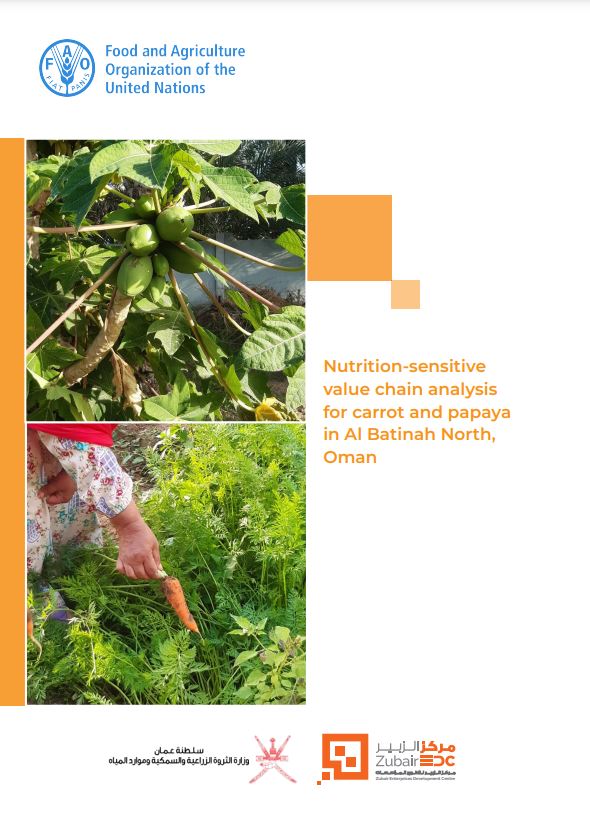Date: June 28, 2022
The Food and Agriculture Organization of the United Nations (FAO) has recently launched an initiative to promote sustainable food systems, healthy diets and improved food and nutrition security in Oman. This was undertaken in collaboration with the Ministry of Agriculture, Fisheries, Water Resources (MAFWR), and Zubair Enterprises Development Centre (Zubair EDC).
The project aims at linking local production and supply of safe and nutritious foods with multiple interventions to also increase demand, by influencing consumer behaviour in such a way that it contributes to healthier diets. In addition, it also aimed to encourage government bodies, SMEs, their supporting organisations and investors to use the results of the analysis in their planning. This will enhance the potential of these value chains to generate income and better nutritional outcomes at the national level.
The initiative is aligned with the National Nutrition Strategy of Oman 2014-2050 and the Sustainable Agriculture and Rural Development Strategy (SARDS) 2040. Under this, emphasis is given to the importance of an adequate intake of fruits and vegetables while decreasing the intake of energy-dense foods, as a main determinant of health as well as food security and nutrition.
The three entities conducted an assessment of the Sultanate’s Nutrition-Sensitive Value Chain (NSVC) in one of the main agricultural governorates in the Sultanate: Al Batinah North. The study focused on two commodities; papaya and carrots for their high beta-carotene content. These contain a precursor of vitamin A, which is lacking in the diets of the Omani population, according to the latest health nutrition survey conducted by the Ministry of Health in 2017.
The study also involved SMEs related to food and agriculture, farmer organisations, smallholders and other players along the aforementioned value chains. It shed light on the Sultanate’s current landscape of challenges and opportunities in the supply and demand of carrots and papaya, as they relate to dietary and nutrition challenges.
The analysis produced recommended actions and various investment opportunities across the two value chains to improve the enabling environment to boost demand and supply, thereby leading to an increase in incomes for smallholders and family farms as well as for small SMEs in food processing and innovative start-ups. Furthermore, this assessment contributes to the UN Sustainable Development Goals (SDGs) through improved knowledge of the food system in Oman and providing a variety of evidence-based intervention and investment opportunities along the value chain.

